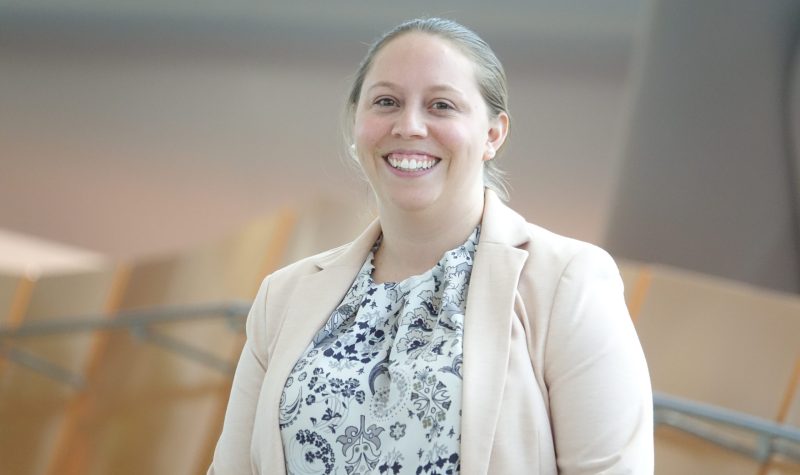It has been about a year since Doctors Nova Scotia (DNS) appointed Halifax family physician Dr. Leisha Hawker, as president. Hawker, who believes one of the biggest issues across the province is access to primary health care, said one of the ways to improve health care and relieve pressures on hospital emergency rooms is by assisting senior patients.
Hawker currently works at the North End Community Health Centre on Gottingen St., a collaborative health center with a team of health professionals working alongside physicians. The clinic serves a historically marginalized, low socio-economic and culturally diverse population.
"In Nova Scotia, one thing that's been dominating the media is our significant challenges in our emergency departments with timely assessments. A lot of that problem is from inflow and also outflow," said DNS President Dr. Leisha Hawker.
Doctors Nova Scotia is a professional association representing all physicians in the province.
Hawker said in terms of inflow, many patients are seeking care at the emergency departments because they have no other options on where they can find help.
"There are about 13 per cent of Nova Scotians that don't have a family doctor - about 130,000 Nova Scotians. Sometimes they have an issue that might be urgent or timely but not an emergency," said Hawker.
The other issue she addresses is the outflow, where people in emergency departments look to be admitted but there are no hospital beds for them.
"Part of that outflow challenge is the difficulty with bed shortages, we have a significant number of beds taken up by seniors who are either unable to return home or are waiting for a nursing home or long-term care."
She said bolstering up primary care and assisting seniors could relieve the strain on the emergency departments. Having programs tailored to certain needs would also help alleviate some of the strain.
"At the North End Community Health Center, we have community-focused programs. The neighborhood that we serve is generally a marginalized low socio-economic neighborhood and we have high rates of homelessness, previously displaced African Nova Scotians, as well as a high rate of substance use," she said.
The center has created initiatives to better tailor those needs such as having a good food box program, to help with security issues. Another service they provide is dental clinic services to those who wouldn't be able to afford to see the dentist.
"We have multiple social workers, we have mental health support workers, harm reduction workers, for example. We also have a managed alcohol program, which was relatively new and started during the pandemic. So it's the community health centers quite tailored to the community's needs."
Hawker said she would like to see other community health centers following a similar model.
Listen to the full interview below:


